1. Riding Bikes for Miles Without a Phone
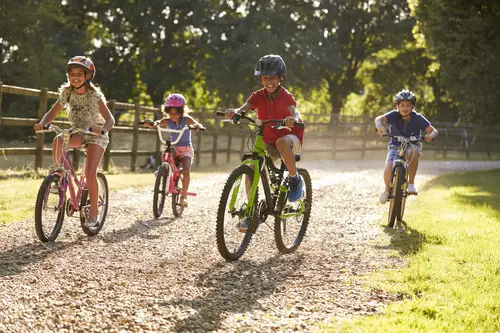
Back in the day, kids would hop on their bikes in the morning and disappear for hours, sometimes even until the streetlights came on. There were no GPS trackers or constant check-ins—just a sense of adventure and the confidence to navigate the neighborhood (or beyond) on their own. They learned to follow landmarks, ask for directions if they got lost, and handle minor bike repairs like fixing a slipped chain. Sure, there were scrapes and the occasional wipeout, but those were just badges of honor. Parents trusted kids to figure things out, and that built real-world problem-solving skills shares BuzzFeed.
Nowadays, kids are rarely without a phone, and many parents wouldn’t dream of letting them roam so freely. With constant supervision, they don’t get the same chance to develop independence and self-reliance. There’s a comfort in knowing exactly where your child is at all times, but there’s also something lost when kids don’t experience that small taste of freedom. Those long, unsupervised bike rides helped kids build resilience, courage, and a sense of responsibility that’s harder to come by today.
2. Playing in the Woods Without Supervision
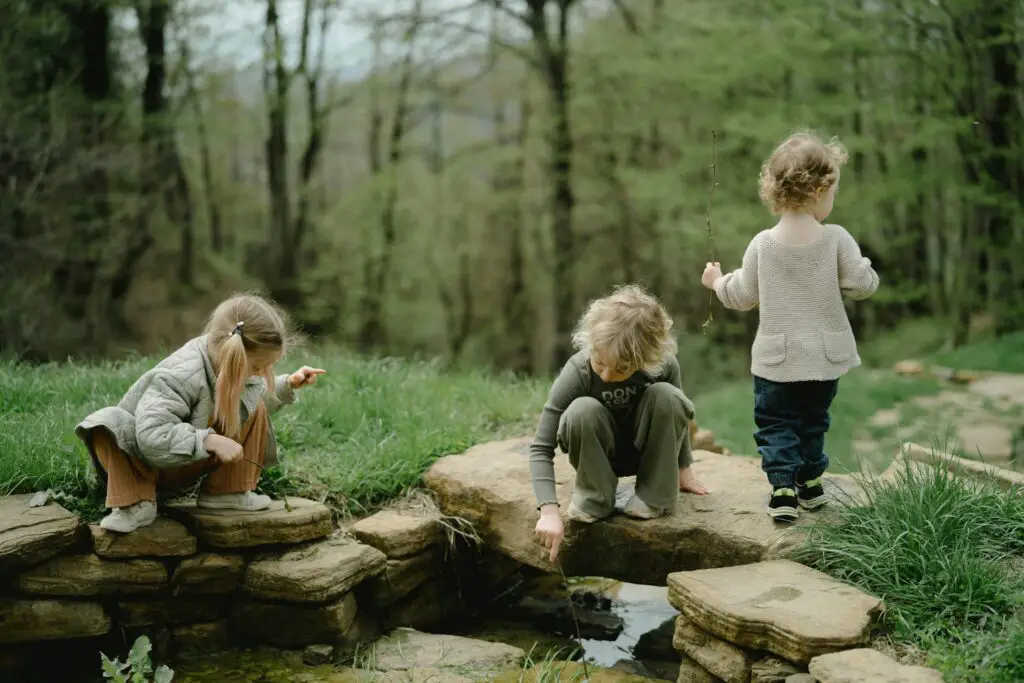
There was nothing quite like heading into the woods with a group of friends, armed with only a sense of adventure and maybe a pocketknife if you were lucky. Kids built forts, climbed trees, and splashed through creeks, often returning home covered in mud and scratches. They had to rely on their instincts to avoid dangerous situations and navigate back before it got too dark. No one was hovering nearby, warning them about every possible danger. They learned to take calculated risks and push past fears—like the first time they jumped across a creek or climbed a tree higher than ever before adds Upworthy.
Today, kids are rarely allowed to explore unsupervised, and wooded areas are often off-limits due to safety concerns. But in taking away that freedom, they miss out on the small but powerful lessons that come from independent exploration. When kids had to make decisions in real time without an adult stepping in, they built confidence and courage that stayed with them for life. The woods weren’t just a playground—they were a classroom for bravery.
3. Walking to School Alone or With Friends

For generations, kids walked to school, sometimes covering a mile or more on foot, rain or shine. It was an everyday adventure that required them to be aware of their surroundings, handle small challenges, and make it to their destination on time. Whether crossing busy streets, navigating shortcuts, or handling unexpected situations like a loose dog, they learned valuable life skills. Parents trusted them to be responsible, and that trust instilled a deep sense of independence. There was also a social aspect—walking in groups meant sharing stories, cracking jokes, and even settling the occasional playground dispute before the first bell rang says AOL.
Today, walking to school has become rare, with many kids being driven or taking the bus, even for short distances. While safety is a real concern, the constant supervision takes away opportunities for kids to develop street smarts and confidence. They don’t learn to navigate their surroundings in the same way or experience the small victories of making it to school despite bad weather or tricky intersections. Walking to school wasn’t just about getting from point A to point B—it was about learning self-reliance and resilience.
4. Staying Home Alone at a Young Age
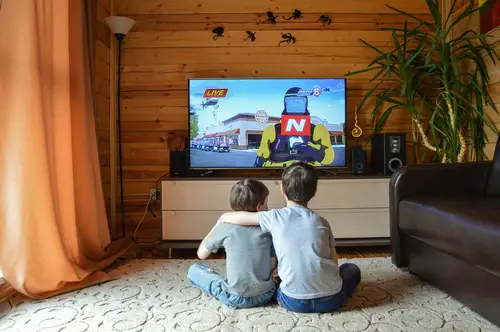
Once upon a time, being left home alone was a rite of passage. Many kids as young as eight or nine were trusted to take care of themselves for a few hours while their parents ran errands or worked late. They had to remember the house rules, handle minor emergencies, and entertain themselves without constantly reaching out for help. Whether it was making a snack, answering the phone properly, or knowing when to call a neighbor, these small responsibilities built confidence. Every time they successfully stayed home alone, they felt a little more capable explains HuffPost.
Now, leaving kids home alone is seen as risky, and many parents hesitate to do it until their children are much older. While safety is always a factor, the lack of early independence means kids miss out on learning how to handle situations on their own. Knowing they were trusted to be responsible gave kids a sense of maturity that prepared them for bigger challenges down the road. That first solo evening at home wasn’t just about independence—it was about learning to trust themselves.
5. Settling Arguments Without Adult Intervention
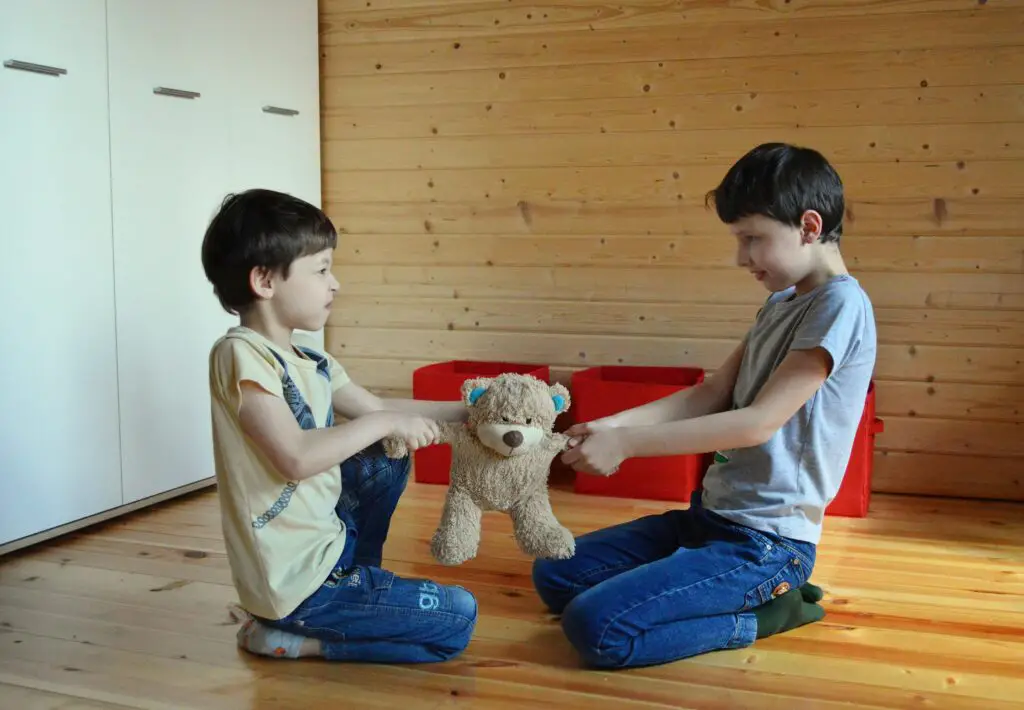
Kids used to settle their own disputes, whether it was a playground scuffle, a disagreement over rules in a game, or a sibling squabble. They had to learn to negotiate, compromise, and sometimes just let things go. It wasn’t always pretty, but it taught them how to handle conflict without expecting an adult to step in and fix everything. They learned to read people’s emotions, gauge when to push and when to back down, and navigate the tricky world of childhood relationships.
Now, parents and teachers often intervene at the first sign of conflict, making sure no one’s feelings get hurt. While it comes from a place of kindness, it prevents kids from developing resilience and social problem-solving skills. They don’t learn to handle confrontation or work through issues on their own, which can make adulthood more challenging. Learning to manage disagreements early on made kids tougher and more emotionally intelligent.
6. Playing Rough Without Protective Gear
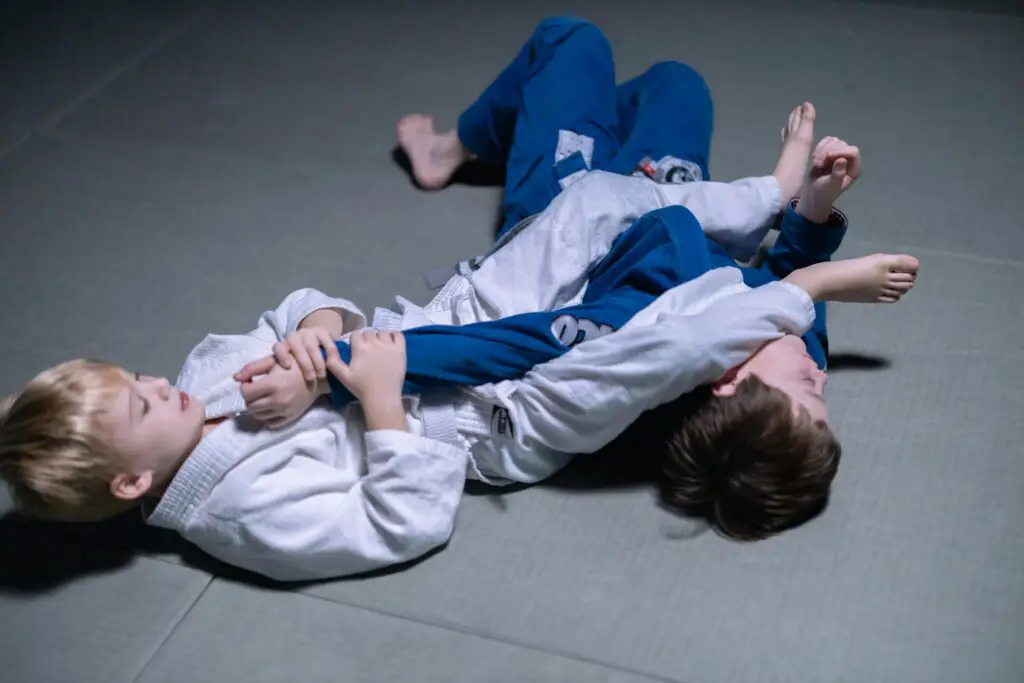
Before modern parenting stepped in, kids tackled, wrestled, and climbed without knee pads, helmets, or constant reminders to “be careful.” Whether it was backyard football, skateboarding on cracked sidewalks, or jumping off swings, they learned firsthand what their bodies could handle. Bumps and bruises were part of the deal, and each one came with a lesson in risk assessment. They figured out how to fall safely, get back up, and keep going despite a scraped knee or a bruised elbow.
Today, everything seems to come with extra padding and supervision, making rough play less common. While safety is important, there’s something to be said for learning how to take (and recover from) a fall. When kids played rough, they didn’t just build physical toughness—they built mental resilience. They learned that getting hurt wasn’t the end of the world, and that courage meant trying again even after a wipeout.
7. Climbing Trees Without Fear
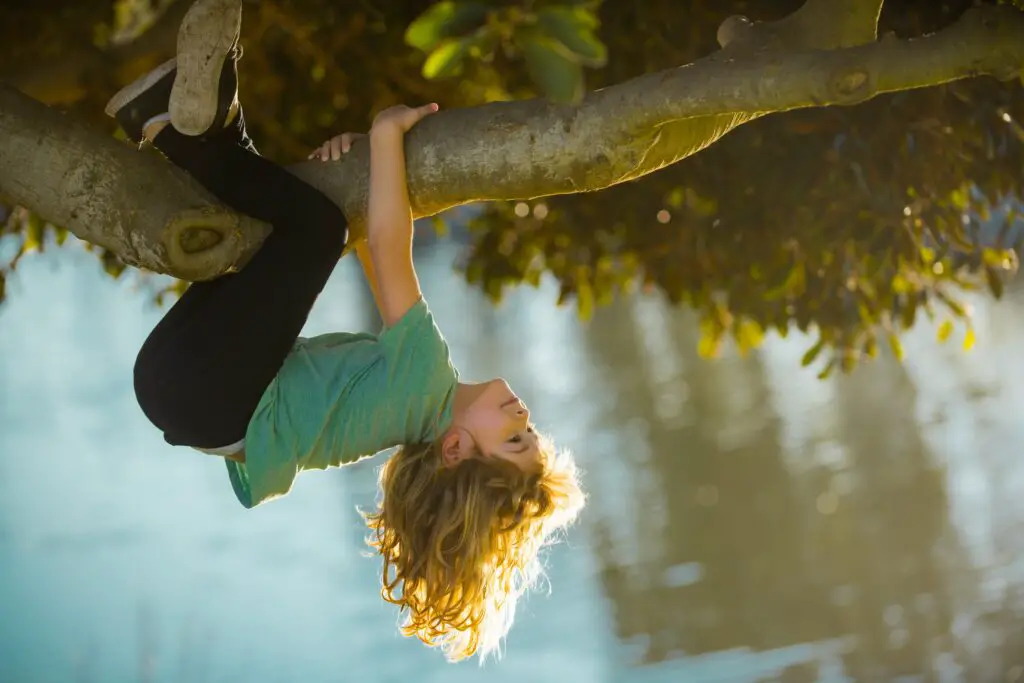
There was a time when every neighborhood had that one perfect climbing tree, and kids spent hours challenging themselves to go higher and higher. It wasn’t just about fun—it was about testing limits, overcoming fear, and learning how to trust their own abilities. They had to figure out which branches could hold their weight, how to get down safely, and what to do if they got stuck. The feeling of reaching the highest branch was pure triumph, a little taste of adventure that built confidence.
Now, many playgrounds discourage tree climbing, and parents are quick to warn kids about the dangers. But with all the caution, kids miss out on learning how to assess risks for themselves. Climbing trees wasn’t just about physical ability—it was about courage, decision-making, and pushing past fear. Every successful climb made kids a little braver, and that bravery carried over into other parts of life.
8. Going Trick-or-Treating Without Parents
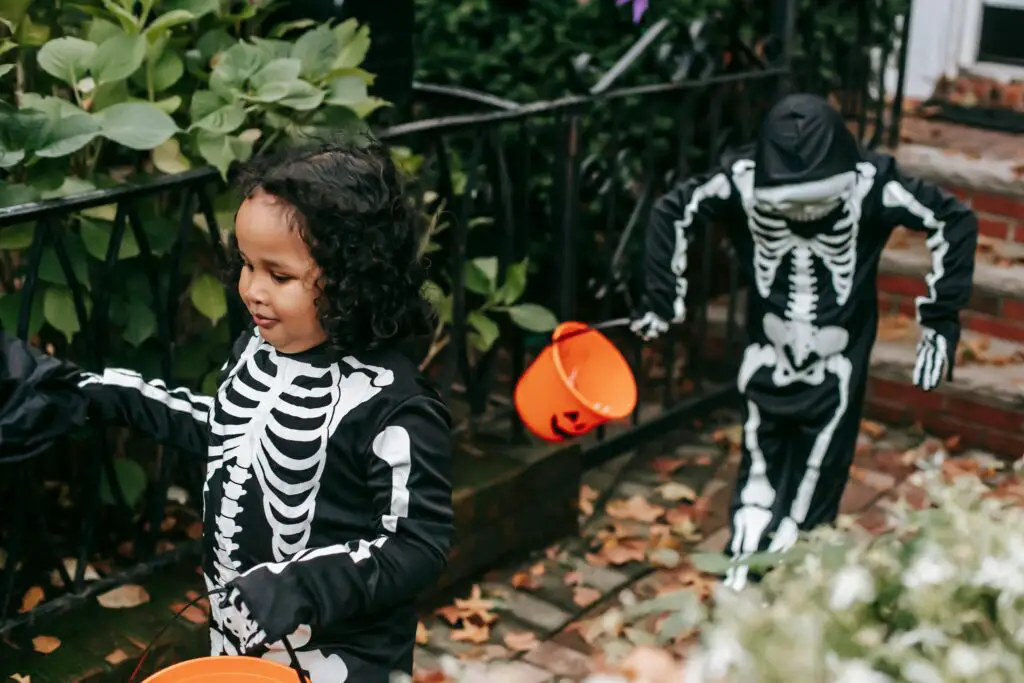
Halloween used to be the ultimate childhood adventure. Once kids were old enough—usually around eight or nine—they were set loose with a pillowcase and a group of friends, ready to conquer the neighborhood. They had to plan their route, navigate dark streets, and use their best manners at every doorstep. The occasional spooky house or unexpected jump scare added to the thrill, and running from yard to yard built confidence and excitement. The night wasn’t just about candy—it was about proving they could handle themselves without an adult hovering nearby.
Today, trick-or-treating is often a fully supervised event, with parents walking alongside or even driving kids from house to house. While safety is a concern, the lack of independence means kids don’t get the same rush of excitement from doing something on their own. They miss out on the small but meaningful victories of navigating their neighborhood and making choices without constant oversight. Halloween used to be a little spooky, but part of that was the courage it took to face the night alone.
9. Answering the Home Phone and Taking Messages
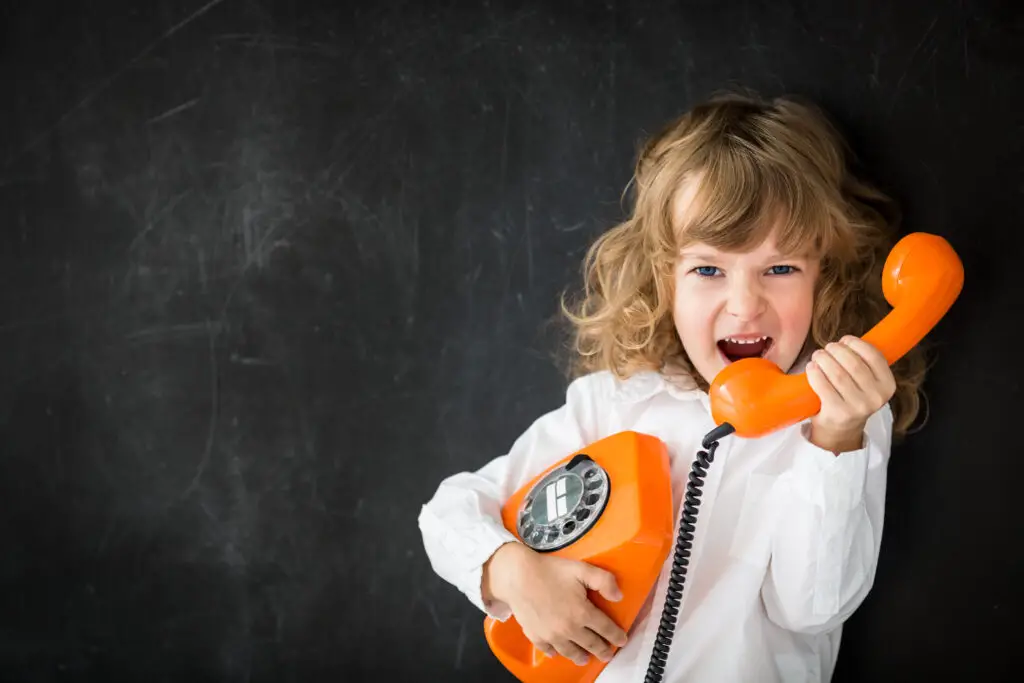
Before smartphones and caller ID, kids were often responsible for answering the family phone and taking messages. There was no way to know who was calling, so they had to answer politely and communicate clearly. If a parent wasn’t home, they had to write down messages accurately and remember to pass them along. This built confidence in speaking with adults, problem-solving when a message was unclear, and learning basic social etiquette. It also forced them to think on their feet—especially when a friend’s parent or a telemarketer was on the other end.
Now, most households don’t even have landlines, and kids rarely answer calls from unknown numbers. With text messaging and caller ID, they aren’t exposed to the same level of direct communication. While this may seem like a small change, it means kids miss out on developing important social skills early on. Answering the phone wasn’t just a household task—it was an introduction to handling responsibility and speaking with confidence.
10. Eating Whatever Was Served Without Special Requests
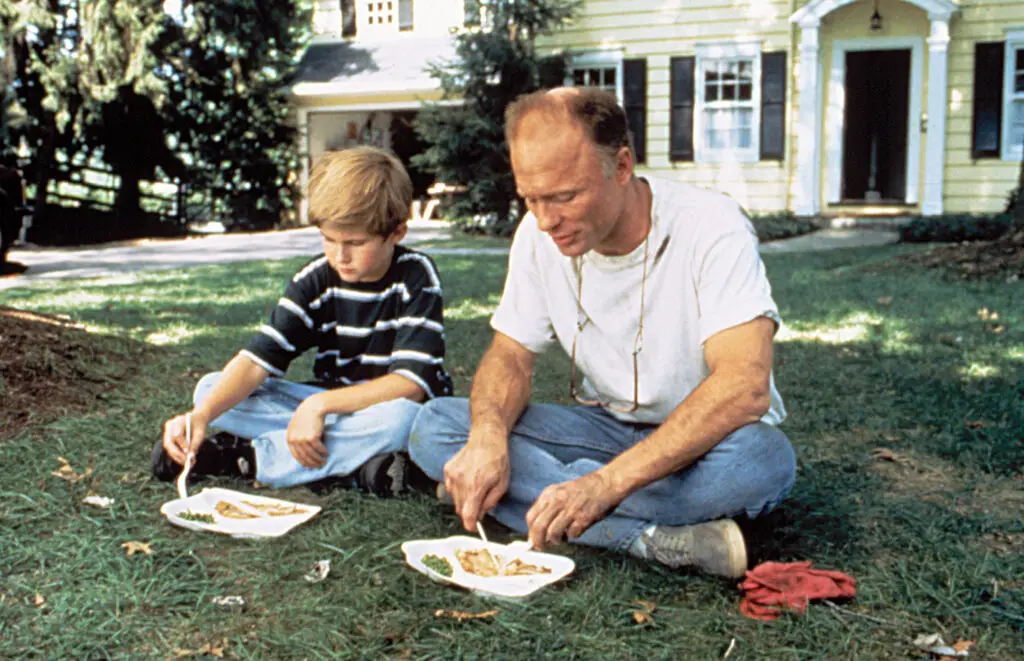
There was a time when kids ate what was on their plate—no substitutions, no short-order cooking. Whether it was a home-cooked meal or dinner at a friend’s house, the rule was simple: eat what’s served or go hungry. This taught kids adaptability, patience, and even a little gratitude. They learned to try new foods, develop a tolerance for things they didn’t love, and appreciate the effort that went into making meals. Complaining about dinner wasn’t an option, and skipping a meal was a personal choice rather than a catered solution.
Now, it’s common for parents to accommodate picky eating with alternative meals or special requests. While preferences matter, constantly adjusting to a child’s every food whim can prevent them from learning flexibility. Eating what was served built resilience and a sense of gratitude, even if it meant tolerating a few bites of Brussels sprouts. Kids who had to adapt at the dinner table carried that adaptability into other areas of life.
11. Babysitting Younger Siblings or Neighborhood Kids
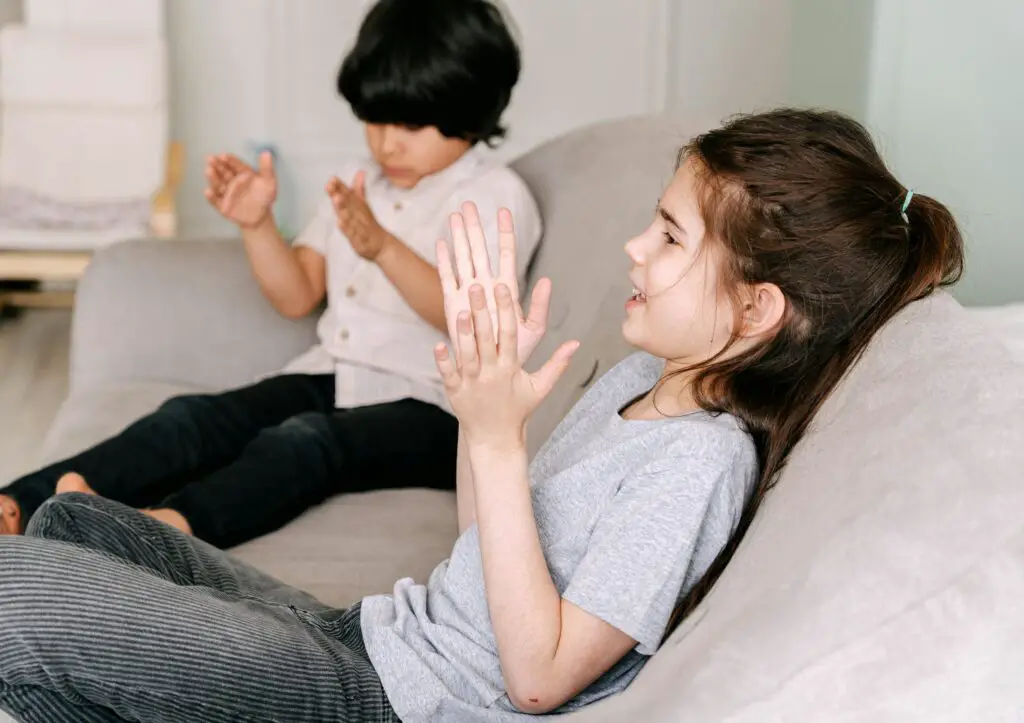
For many kids, their first real job was babysitting a younger sibling or a neighbor’s child. This wasn’t just about keeping a kid entertained—it was a crash course in responsibility. They had to keep someone else safe, manage basic needs like feeding and bedtime, and problem-solve if things didn’t go as planned. Parents trusted them to handle the job, and that trust helped them feel capable and mature. Even when things got challenging, they figured it out because they had to.
Now, formal babysitting is often reserved for adults or highly trained teens, and younger kids don’t get the same early experience in responsibility. Without these small but important challenges, they miss out on learning how to handle responsibility before adulthood. Babysitting wasn’t just a way to earn a few dollars—it was a first taste of leadership and courage. Knowing another child depended on them gave kids a deep sense of capability that stayed with them for life.
12. Making and Sticking to Plans Without Parental Coordination
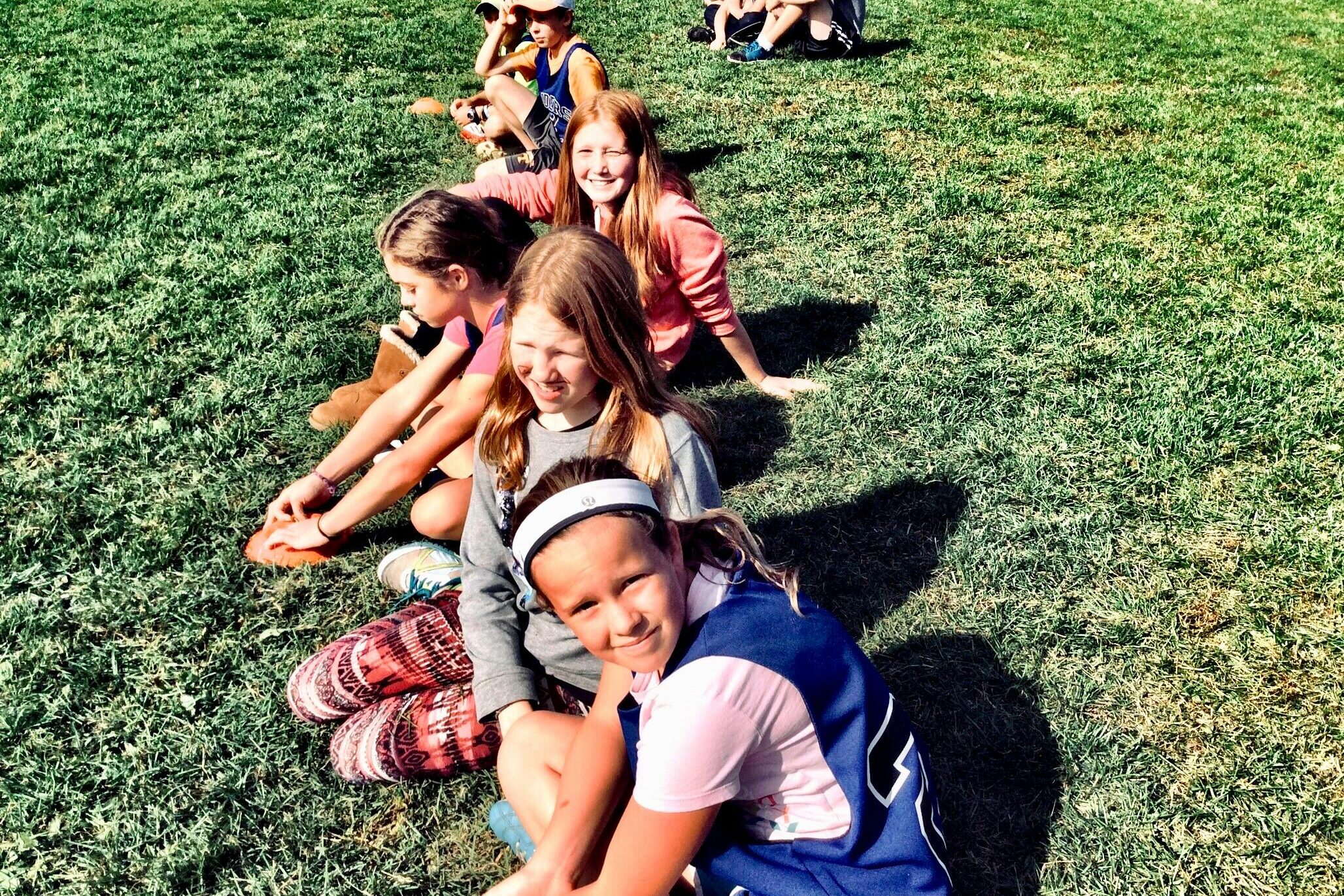
Before cell phones, kids had to make plans in advance and actually stick to them. If they said they’d meet a friend at the park at 3 PM, they had to be there—there was no way to check in or cancel at the last minute. This taught accountability and reliability, as well as the ability to make decisions without constant parental oversight. If something unexpected happened, they had to think on their feet and adapt, rather than relying on an adult to step in. Making plans and following through wasn’t just about fun—it was about learning to be responsible for their own commitments.
Now, kids and parents communicate constantly, making last-minute changes and adjustments all too easy. While technology is convenient, it’s also removed the need for kids to develop strong planning skills. Without the structure of set plans, they miss out on the lessons of reliability and personal accountability. Learning to manage their own schedules built a quiet kind of confidence that shaped them into dependable adults.
13. Facing Fears Without Immediate Comfort
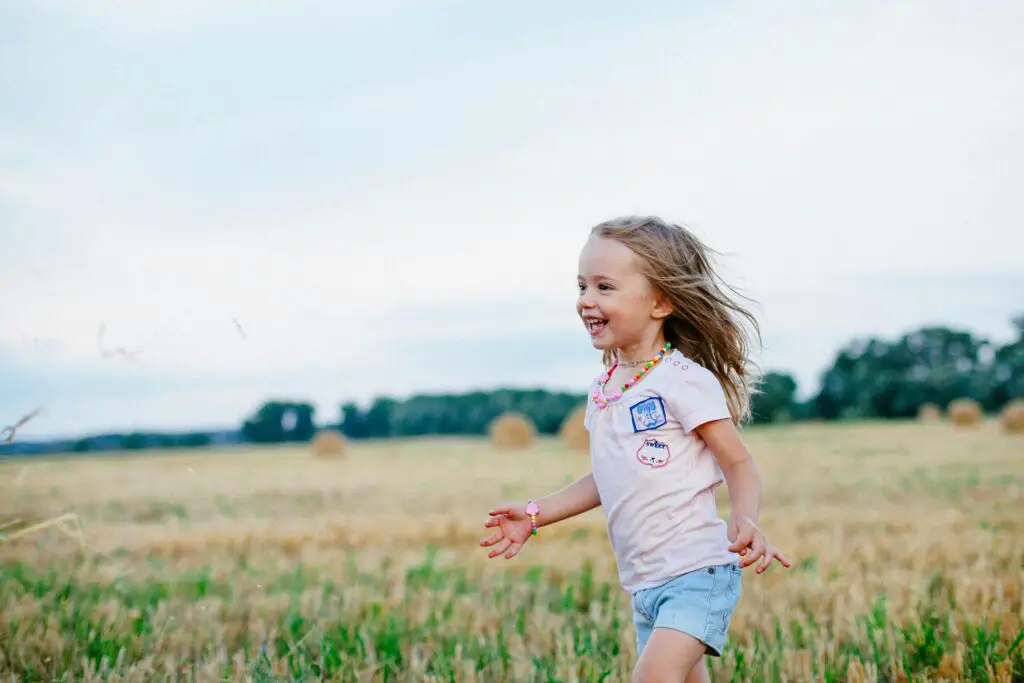
Whether it was watching a scary movie at a sleepover, walking past the creepy abandoned house on the way home, or braving the high dive at the pool, kids used to face their fears head-on. They didn’t always have someone reassuring them right away, so they had to learn to push through on their own. Sometimes that meant pretending they weren’t scared until they actually started to believe it. Other times, it meant taking deep breaths and doing the thing anyway. Either way, they learned that fear wasn’t something to avoid—it was something to overcome.
Now, it’s common for parents to step in quickly to soothe fears or remove scary situations altogether. While reassurance is important, constantly shielding kids from discomfort means they don’t develop the courage to handle fear on their own. Those childhood moments of bravery—whether big or small—helped shape kids into confident, resilient adults. Facing fears without a safety net built real, lasting courage that carried them through life’s challenges.
